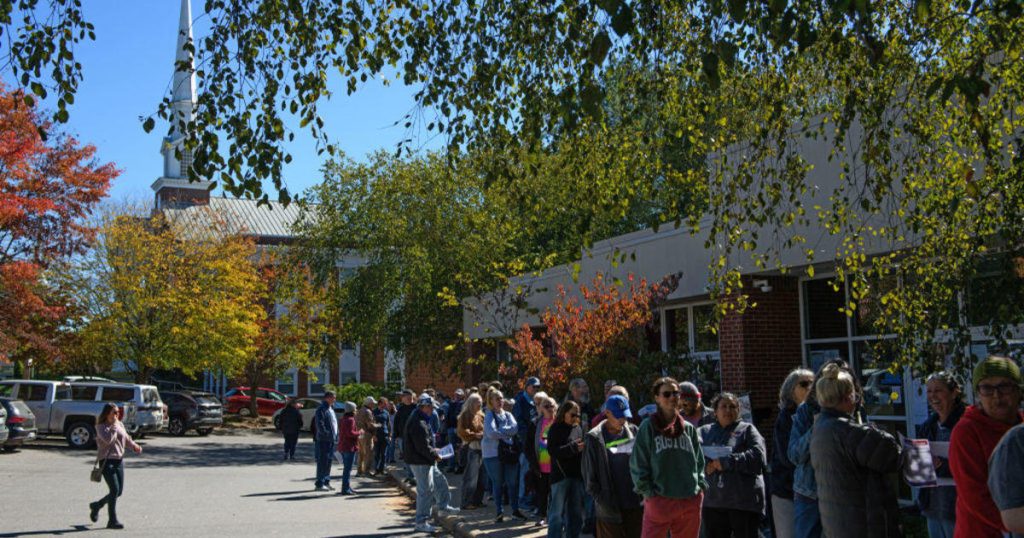Hurricane Helene, the deadliest storm in modern times for North Carolina, caused significant damage to the state’s westernmost communities. Despite the challenges faced by residents in the aftermath of the storm, early voting turnout has been exceptional in the state. Karen Brinson Bell, the executive director of the North Carolina State Board of Elections, noted that there has been a tremendous outpouring of voters making sure they can still cast their ballot, even in the heavily affected counties.
In the wake of Hurricane Helene, which caused extensive damage and left some regions without power, clean water, and critical infrastructure, election workers quickly adapted emergency measures for early voting. Coordination with state administrators resulted in a relatively smooth voting process in the 25 FEMA-designated disaster counties. More than 2 million ballots were cast within the first week of early voting statewide. Despite concerns over the state’s readiness for the 2024 elections, efforts were made to ensure accommodations for the hardest-hit regions.
Questions arose about the integrity of the election in the heavily damaged areas, with some suggesting that electoral votes should be awarded before votes were counted. However, North Carolina GOP colleagues and election officials rejected these ideas, emphasizing the importance of counting every legal vote. Special accommodations, such as new polling sites, expanded voting hours, and more absentee ballot drop-off locations, have been implemented to ensure that all eligible voters have the opportunity to participate in the election.
Residents like Victor Mansfield from Yancey County were determined to vote despite facing significant challenges in the aftermath of the storm. More than one-third of Yancey County’s registered voters have already cast their ballots, showing a strong commitment to participating in the election despite the difficult circumstances. In neighboring counties like Avery, turnout has also been noteworthy, with many residents making the effort to come out and vote in person.
While initially, some counties saw modest early voting numbers, there has been a surge in turnout, particularly in Buncombe County, the largest in western North Carolina. The Republican National Committee and the North Carolina Republican Party have raised concerns about limited access for hurricane-affected voters and alleged “partisan voter suppression” in Buncombe County. However, election officials in the county maintain that they have taken measures to ensure a smooth and fair election process, despite the challenges posed by the storm.
Overall, residents in western North Carolina have shown resilience and determination to exercise their right to vote, even in the aftermath of a devastating hurricane. Early voting turnout has been impressive, with communities coming together to ensure that their voices are heard in the upcoming election. Despite challenges and criticisms, election officials are working diligently to provide accessible and secure voting options for all residents, maintaining the integrity of the electoral process in the face of extraordinary circumstances.


